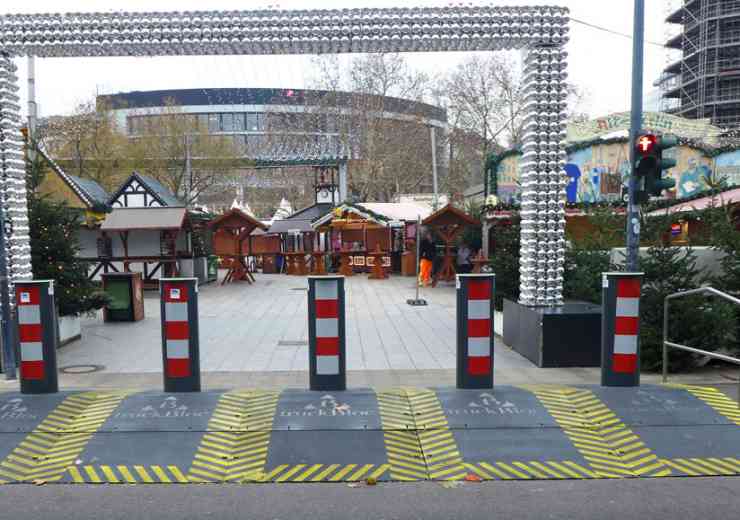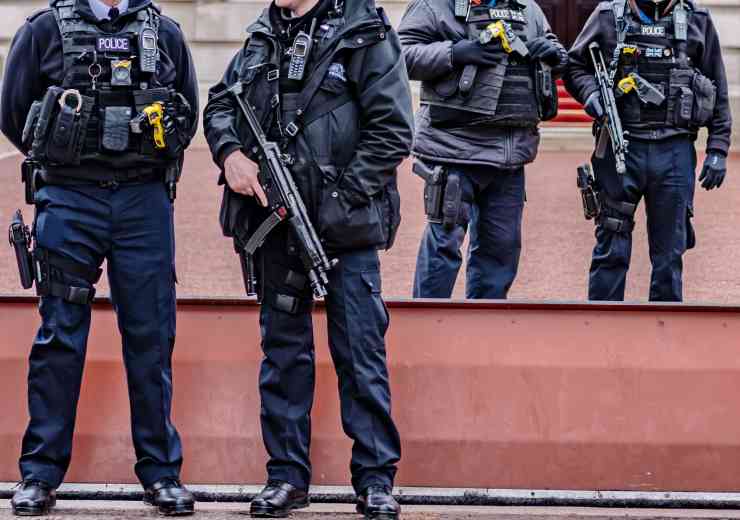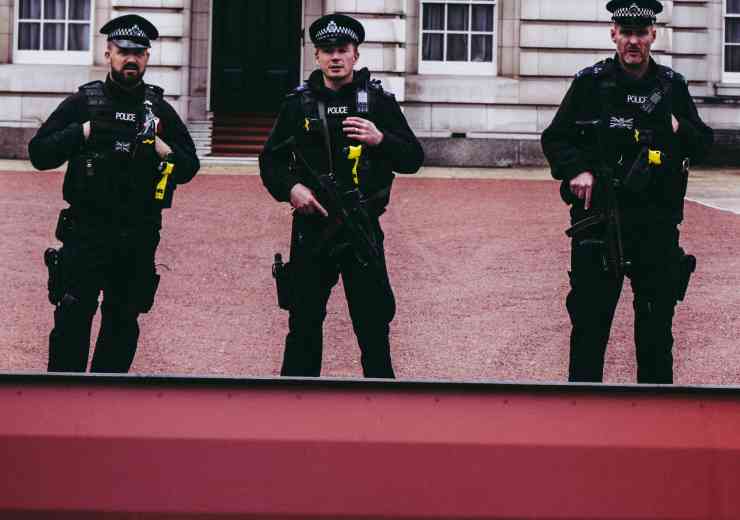Defence of the realm
 With the installation of the UK Coalition Government the British public were promised a new approach to defence, more befitting to the current geo-strategic environment and economic climate. We were told that the lack of a proper strategic defence review for more than ten years had caused the Ministry of Defence to run off the rails mainly due to it seeking to fulfil equipment aspirations still rooted in Cold War era thinking, without the availability of matching finances; resulting in a shortfall of some £38bn.
With the installation of the UK Coalition Government the British public were promised a new approach to defence, more befitting to the current geo-strategic environment and economic climate. We were told that the lack of a proper strategic defence review for more than ten years had caused the Ministry of Defence to run off the rails mainly due to it seeking to fulfil equipment aspirations still rooted in Cold War era thinking, without the availability of matching finances; resulting in a shortfall of some £38bn.
Moreover, political aspirations to “save the world” and “standing shoulder to shoulder”, without clear and coherent strategic objectives had resulted in a prolonged commitment for UK Armed Forces.
Today we are almost ten years into the confrontation with Jihadists and we still do not know who our enemy is, the objectives we need to pursue, or the best strategy for accomplishing those objectives.
OUT WITH THE OLD, IN WITH THE NEW
Against this background it felt good to welcome a new team intent on rebuilding the British reputation and re-enforcing national aspirations, ethos and values in ways we could recognise once again as our own.
Prime Minister David Cameron stated that it is in our national interest to preserve and extend British influence while the scale of the opportunities we face demand continued active engagement in the world. Moreover, we were promised a different approach by which we would become safer, stronger more resilient and together making Britain stand tall once again in the world. Such pledges would serve us well especially considering that over one million Britons now live abroad, that our trade takes place internationally, and individuals are socially connected within a global village.
Yet, as stated in DCDC’s Global Strategic Trends report, a plethora of threats to our existence and interests at home and abroad is more extensive and varied than ever before. The promise of a coherent and defensible assessment of the threat against the nation was therefore a welcome relief.
Moreover, after the bitter and soured relationship between the previous chief of Defence Staff Sir Jock Stirrup and PM Gordon Brown, we were looking forward to a new dynamic and successful partnership.
NEW STRATEGIES
The formation of a National Security Council (NSC) is an indication that the government is taking its promise seriously. The National Security Strategy (NSS) and the Strategic Defence and Security Review (SDSR) were of course the first products to have emanated from it. Yet lo and behold it became apparent that the SDSR had taken place largely without the MOD.
Furthermore, from a defence perspective, at least, it seems to want to tell us that we no longer need to fear conflicts such as the Falklands, Bosnia, Kosovo, Iraq (Desert Storm and OpTelic), and Sierra Leone, because we no longer match our capability aspirations against such threats. This is where our optimism and with it our expectations disappear.
We are told that the threats to the UK and its livelihood are terrorism and cyber crimes. Rationally, one could construe that we no longer require significant parts of our defence capabilities at a time that other nations still consider these to be crucial or are even in process of acquiring.
AFFORDABILITY
Never has a government affected so much havoc to national defence capabilities and international credibility as currently. We are told that we now live in times that force us to accept we can no longer afford all the safety and security capabilities we need, such as maritime surveillance and long range rescue intended to be provided by the recently scrapped Nimrod, but simply have to live with the increased risks that this entails.
It is also becoming clear that the defence capability corresponding resulting from the SDSR is still unaffordable and further cuts to cover the remaining gap to be estimated around £1-1.5 billion await us. A large number of experts have commented on the lack of coherence and on some of the apparent irrationality behind the SDSR process.
Geopolitically, the government seems uncertain, nervous or even ambiguous about its relationship with the USA. On the one hand it seems ill equipped to respond to American indifference to British military capability. Consequently the British effort does not receive the recognition it deserves. One wonders what price has been paid by the men and women of our Armed Forces, allowing the UK handover of Basra to be reported as a defeat and recent United States Marine Corps (USMC) successes in Afghanistan to be portrayed against UK failure.
Of course, one cannot deny that within an international and NATO context, the USA remains the leading force and a British future for defence continue to rely on this. With Dr Liam Fox, the MOD is led by a Defence Secretary who founded the Atlantic Bridge, an organisation aiming to unite British and American Conservatives and foreign policy hawks, thus suggesting one would not be surprised if an overhaul of UK defence acquisition and industry would take place in favour of a pursuit and procurement of American. Such a defence driven acquisition policy will be disastrous for British defence industry and associated employment, if it were not to be accompanied by a clear economic policy.
It is true that the prevailing procurement paradigm within the European context is one of competition which, it could be argued, will lead to affordable costs and ensures value for money; it should not stop us from seeking financial off-set from foreign suppliers to warrant a degree of national contribution and thus securing employment. Yet the decision to persist with the aircraft carrier programme is a good example that measures can be taken that make economic sense, even if these may be militarily dubious.
MOVING FORWARD
Where does this leave us? Are there any positives to be deduced from the current state? Personally, I don’t believe that a shouting contest in the press and continually demanding the reversal of the decisions about the abolishment of platforms, reduced allowance and redundancies of people will resort the right effect.
It has been made clear that defence has to make a contribution to the deficit reduction that has become the Cabinet’s highest priority. I do think that we must strongly protest against the apparent subjectivity and irrational optimism about threats and the economic recovery underpinning the decisions, which has lead to the professed incoherence of the residual defence capability. Otherwise once capabilities are lost, it will be impossible to rebuild in an affordable and timely manner.
The UKNDA believes that the UK needs to retain capabilities that enable us to make and influence decisions, i.e. independent eyes, ears and sense making. Combined with effective command and control capabilities these become force multipliers, which have given UK a leading edge and in the future will allow the nation to get more bang from its bucks.
A recent report by the House of Commons Public Administration Select Committee, chaired by Bernard Jenkin MP, found that the UK has a national weakness in the area of national strategy. There seems to be a systemic failure caused by a lack of capability, skills, organisation and an inter-departmental approach to name a few of the main ones.
The committee congratulated the government with its aspiration to think strategically but warned that restoring strategic leadership demands an investment in time and energy. More time than it has given itself in the recent SDSR and which explains the inescapable necessity for further cuts in the near future.
The NSS is based on recognition that safety and security are interlinked and that most government departments have a contribution to make. To prevent us from suffering further damage from continued piecemeal reductions or salami slicing of a defence budget, a true strategic assessment process needs to be kick-started.
WORKING TOGETHER
As shown by the previous CDS, the MOD has the knowledge, experience and information to fulfil a leading role in such a process. The people will not accept that future crises and disasters will be merely acts of god. Instead we demand of our government to provide us with a credible and effective national safety and security at home and abroad, more and more delivered by intelligence services, emergency services – including the Maritime and Coastguard Agency and UK Border Agency, Armed Forces, and the voluntary sector working together as an integrated capability.
This will demand that government departments will not just do things more efficiently, but could consider operating differently and seek collaborations to achieve the maximum effect for our money. UK industry must be allowed take part in this process and assist in building and supplying national capabilities. Even when leading cutting edge technologies have been developed abroad, UK businesses could play an important brokerage role or provide a high-grade engineering work force.
For more information:
E-mail: ceo@uknda.org
Web: www.uknda.org
digital issue




















